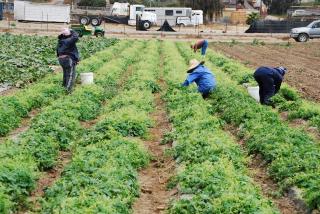Let Our Table Stand Like an Altar
I [do not] mean to present myself as some kind of bodhisattva of compassion. However, in my better moments—at least in my more conscious moments—while I’m eating, I do try to imagine the lives and even the deaths of the creatures who nourish me.
I try to think of the freedom and exhilaration of the wild Atlantic salmon leaping up a frigid mountain stream. I try to imagine its distress as it is pulled from the water and slowly suffocates in the air. I try to imagine the big soft eyes of the dairy cow hooked up to the milking machine and wonder if her udders are sore or if her legs ache as they support her enormous body on the cement floor all day. I try to imagine the bright red-gold eye of the hen who produced the beautiful brown eggs I’m breaking into my cast iron pan, and remember that her laying days will be numbered.
Such thoughts may seem perverse, but simply remembering these beings seems to be one of the few ways that I can express my indebtedness to them. Wendell Berry mentions that the thought of the calf contentedly grazing in the good pasture flavors the steak, that such knowledge calms, and relieves, and the frees the eater.
But knowledge of the factory farm also flavors the meat, in a different way. Imagining the lives of the animals steers me away from meat and eggs produced in the cruel and grotesque conditions that are typical of industrial livestock farming. The thought of the animals’ suffering curbs my appetite. It guides me, according to my conscience and financial capacity, to spend the extra money it costs to support humane farming practices.
But since I cannot always be the purist I might like to be, I try to integrate even the awareness of suffering into my eating meditation. It is part of the energy that I am ingesting, and I feel some responsibility to recognize it.
…Let us imagine that we are going to eat something that we’ve prepared at home using a number of ingredients, including some prepared foods that come in bottles or cans or boxes. Imagine all of the hands that have participated in bringing to food to the table for this one meal:
Who are the faceless hundreds who planted and harvested, who cleaned and packaged and canned, who shipped and stocked, who perhaps combined and repackaged, and shipped a second or third time, then stocked the supermarket, ran the cash register, and bagged our groceries? If we also imagine the extended network of relationships that sustain the farming, factory, and freight industries, that web of connections reaches out indefinitely in our global economy. So many hands, so many faces, so many stories, now connected to your own because you decided to use raisins, or bananas, or salmon, a European cheese, or coffee or soy sauce (although, I hope to God, not in the same dish!).
Consider the migrant workers who harvest so many of our table fruits and vegetables. Their labor is indispensable to the farming industry, yet they are some of poorest, most powerless, and most exploited people living within the borders of our nation. That they are often denied fair compensation for their work is a factor behind the moderate prices we enjoy.
Imagine all those faces, those hand, those stories. When we eat mushrooms, or apples, grapes or tomatoes, we are, in a sense, ingesting their labor, their life, their deferred dreams and lack of choice…We cannot escape our interdependence….
Yet, these truths need not ruin our dinner. They need not bring gloom to our Thanksgiving table. Part of being spiritually open is simply understanding that our lives, our blood, our beating hearts, live because we are sustained by other lives. The great life force flows without interruption through everything. Being conscious of these realities deepens our thanksgiving…would that we could live without taking or using life, but we cannot. Therefore let our eating be an act of worship. Let our table stand like an altar.
| Date added | |
|---|---|
| Tagged as |

